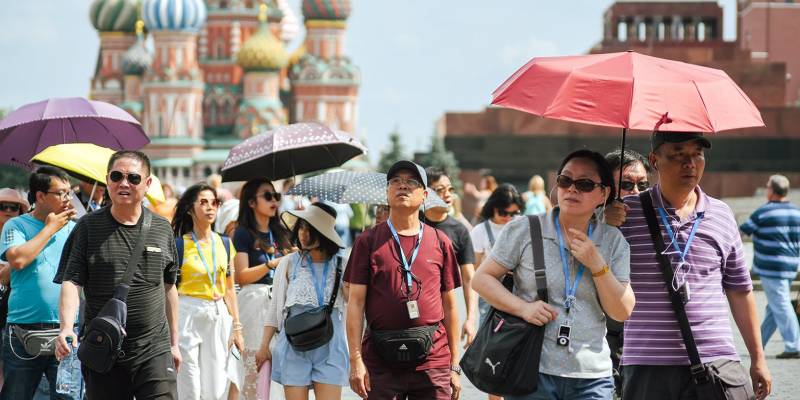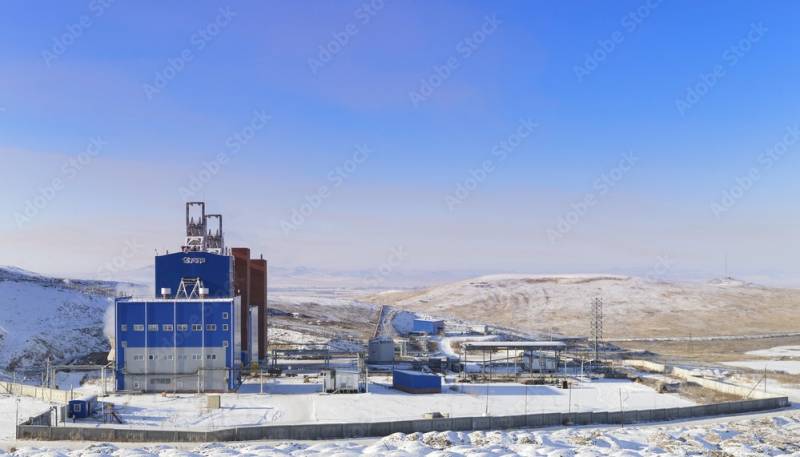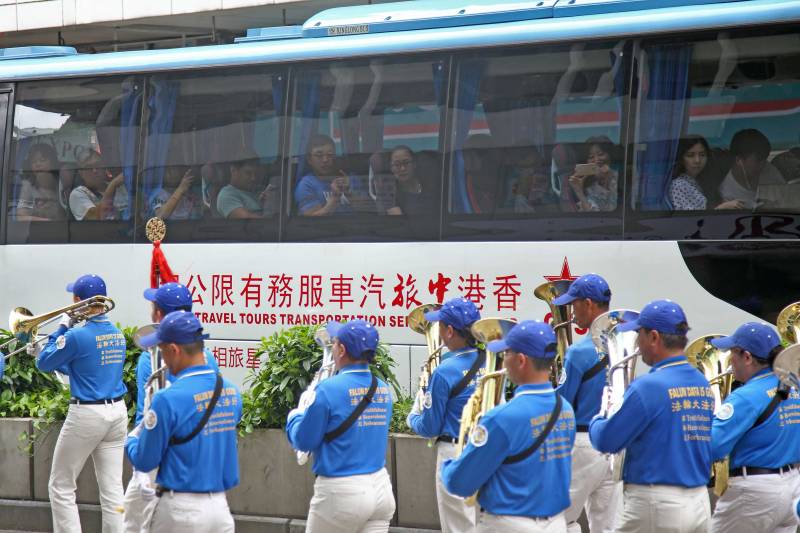Forget huaqiao or the bright image of a Chinese tourist

A different kind of migrant
Migrants today have become a necessary element of our lives. At the same time, in recent years, every tenth foreigner who came to Russia is a Chinese citizen, as follows from the data of the Ministry of Internal Affairs of the Russian Federation for the first half of 2019. Note that this was a pre-Covid year. New data will probably follow the results of this year.
So far, the Chinese have mainly come to Russia for a short time, as tourists. The times of huaqiao, disenfranchised Chinese who worked in Russia wherever possible, and more often not, are long gone. By February 2018, according to the impartial SPARK system, 5 companies were registered in our country, among the owners of which were individuals and legal entities from China.
And this is only part of the picture, since "large Chinese business comes to our country, as a rule, through the jurisdictions of third countries." Most of all, according to the same SPARK system, legal entities with Chinese participation are registered in Moscow, Primorye, St. Petersburg and the Amur Region. Chinese business is represented in 696 different activities.
At the same time, the number of firms reporting income exceeding at least 100 thousand rubles a year was “much more modest” - 1. According to the audit company Ernst & Young, the Chinese in Russia are attracted by the volume of the domestic market and natural resources. At the same time, the cost of labor resources, the tax and legal framework do not suit them.
What is there in Transbaikalia?
Is Russia leasing its land to the Chinese? The question is ill-defined. All information is extremely contradictory. Here news more from June 2015 from yakutia.info. In Transbaikalia, the Chinese company Zoje Resources Investment leased land the size of Hong Kong for 49 years.
The news of February 26, 2018, on the contrary, reads (interfax.ru): “Information on social networks that 49 hectares of land were leased to the Chinese in the Trans-Baikal Territory for 115 years is not true, Interfax was told on Monday” in the press service of the head of the region.
“This is disinformation, such an agreement was not concluded,” the press service added. The agency said that, they say, the governor of the region Konstantin Ilkovsky really negotiated with the Chinese Zoje Resources Investment on the implementation of a joint project, an agreement of intent was signed. But that's all.
And here is the site of Chita. ru reports on December 22, 2022:
Krasnokamensk groups talk about the dissatisfaction of the local residents of the Kailastui settlement, as well as the fact that long-term land leases can become a cover for illegal migration, because it will be very difficult to track the flow of workers from the Middle Kingdom.
Journalists of the publication noted that we are talking about land on the Bambakai pad, which is located 8–10 kilometers from the border with China and about 4–5 kilometers southeast of the industrial site of the Priargunsky Production Mining and Chemical Association (PIMCU). Since Soviet times, radioactive waste has been stored on these lands. The authorized capital of the company is 10 thousand rubles.
The company intends to grow crops on all leased lands. Part of the goods will remain in Russia, but export to China is also planned. It was also reported that before leasing the land, the company took soil samples, which showed that everything was in order: there was no radiation contamination.
Indeed, PIMCU once existed on these lands. According to Chita.Ru sources, PIMCU did not receive the land, but the Zhishengchan company did. The journalist was unable to get a comment from the PIMCU press service, however, it became known that they needed the land for

These are, as they say, pies. Does the agreement with the Chinese firm have a corruption component? What is more important: growing crops or developing uranium deposits? Tricky question!
Who are you, Chinese tourist?
To date, the recovery of tourism from China to Russia is hindered by a number of factors. The main one is that the visa-free travel agreement has not yet been renewed: due to the pandemic, the visa-free travel agreement was suspended in January 2021.
There are other obstacles as well.
Due to sanctions, international bank cards of the Visa and MasterCard systems do not work in the Russian Federation, and the plastic of the Chinese Union Pay system is not accepted everywhere, and it does not always work. And in general, according to experts, it is time for our business to get rid of inflated expectations regarding Chinese tourism.
The reason is that tourists from China use the services of their own tour operators, guides and other partners. Russian companies hardly participate in the chain. The most terrible truth: the flow of Chinese tourists who came to Russia in the pre-COVID period enriched, first of all, Chinese business.
The main surplus value remains in his hands, and Russia earns only "on tickets and chocolates." Transportation, hotel, buffet meals and Chinese guide services are paid for in China at a Chinese travel agency.
The place of the Russian travel agency in this scheme is very modest. In fact, it is only needed to send the invitation form for the Chinese group. That is, the Chinese tourist leaves almost all the money for the tour at home and travels to Russia with a small amount for "pocket expenses".
According to the Association of Tour Operators of Russia, only 50% of organized tourists from China are served legally in Russia, the rest have long been under the wing of gray Chinese companies. Other researchers claim that no more than 20% of Chinese tourists are legally served in the Russian Federation.
Their guides are also Chinese, more often illegal immigrants from among foreigners who act on behalf of certain unscrupulous Chinese tour operators. But, some will say, are the Chinese already traveling and flying on our trains and planes?!
This means that Russian Railways and Aeroflot receive money. But there are nuances here too. The truth is that most often the Chinese get to Russia on charter flights of Chinese airlines, and in the city, whether it be Moscow or St. Petersburg, they travel on buses owned by local Chinese businessmen.

All these cafes and shops represent a fairly narrow segment of the market, sharpened by the Chinese. And behind it stands either Chinese capital and Chinese managers, or that thin layer of Russian business that worked closely with them. By the way, Chinese guides take groups to Chinese canteens, the founders of which are also Chinese. Even the souvenir shops where Chinese tourists usually go are also owned by Chinese businesses.
And in the end?
The development of the Far East is a Russian problem, not a Chinese one. The Chinese know why they need the Russian Far East. They need: a peaceful border - one, the raw materials of the Far East - two, a transport artery - three. First of all, the south of the Far East.
So, it is hardly worth relying on China so much. No one can help us but ourselves. We can skillfully use China's interests, China's potential and learn from China to use this potential. Here you just need to answer the question: “Why do we need China?”
I would especially like to emphasize that the exchange of raw materials for finished products is not an option. We need a completely different approach, a different level of our relationship. And don't expect China to sacrifice anything for Russia. He has his own national interests and state nationalism.
For the Chinese, China is above all: the Chinese idea, the Chinese dream, the rebirth of the great Chinese nation. And what can we do to counter this? So far, alas, nothing! We still have neither a national ideology, nor a national task, nor our own picture of the future. The only thing that can be noted is that China is now strengthening its position as a global power. And here the support of Russia is important for him. Here we have a vision of the world approximately the same as China. That's all.
Information